The content of the article
- 1 When can I rinse my mouth if a tooth has been removed?
- 2 Indications for rinsing
- 3 What are the contraindications?
- 4 What you can do baths: improvised means
- 5 Effective pharmacological agents
- 6 Which rinse can be used?
- 7 Can I use vodka or alcohol?
- 8 Can I use hydrogen peroxide?
- 9 Recipes of traditional medicine
- 10 How to rinse your mouth?
- 11 Important Instructions
- 12 Video: how to rinse your mouth after tooth extraction
Many of us believe that the most difficult thing is to directly remove a tooth. In fact, everything is different. Due to the fact that the doctor performs a real operation on the gum, after the tooth is removed, the patient may suffer from pain, inflammation can also occur if food remains in the hole. Consider what you can rinse your mouth after tooth extraction, when it is necessary to do and other interesting information about the procedures.
When can I rinse my mouth if a tooth has been removed?
After extraction of the tooth, many wonder what can be done to ensure that the wounded gums heal as quickly as possible. After the root has been removed from the hole, the doctor places a sterile gauze pad on the wound, which must be strongly pressed down and held in this position for about 20 minutes. That is, we return home with a mouth full of blood, with a feeling of pain (due to the fact that the anesthesia begins to move away). Naturally, I want to somehow eliminate all these consequences of the operation - that is, rinse your mouth.
But researchers and doctors argue that there is no need to hurry. If you immediately start rinsing your mouth, you can destroy the blood clot that forms after removal - this is necessary in order to protect the wound from attaching a secondary infection.
In view of this, maxillofacial surgeons say: immediately after surgery, you can not rinse your mouth.
Indications for rinsing
If the tooth did not hurt before pulling out, there was no purulent discharge, then there is no point in rinsing the mouth. In this case, the wound will heal on its own without additional intervention.
The procedure will be useful if:
- There is an inflammatory process, that is, previously the tooth was sick, there was a temperature, a feeling of pulsation in the gums.
- Along with the removal of the tooth itself, an incision was made in the gum due to a disease called flux.
- Teeth collapsed. Such a moment may be associated with carious lesions, the presence of infectious processes. In this case, the hole will be reliably protected from possible damage.
Important: as a result of rinsing, the pathogenic microorganisms die, but the patient must remember that the manipulations must be carried out carefully so as not to cause even more harm to themselves.
What are the contraindications?
Rinse your mouth can not in the following cases:
- 24 hours after the procedure;
- the doctor did not recommend the procedure;
- if the oral cavity has been sanitized, and the patient has a good immune system.
If you do not follow the above rules, the following may occur:
- frequent bleeding from the hole, tissue will heal poorly;
- the development of alveolitis or osteomyelitis - the so-called inflammatory process;
- suppuration of tissues.
What you can do baths: improvised means
So, consider what you can use for rinsing the mouth - these ingredients are available in every family:
Soda and salt. Take 1 tsp. spoons of salt, stir in 200 gr. boiled water. No need to rinse - you can remove the clot. If desired, 1 tsp is added to the saline solution. soda Such a prescription is recommended in cases where the patient has an abscess or fistula, and the doctor opened it.
You can cook a decoction with the addition of herbs:
- eucalyptus;
- calendula;
- chamomile;
- sage.
To prepare the solution, you will need 1 tbsp. medicinal herbs and a glass of water. Boil in a water bath for 15 minutes, cool, strain - you can use.
You can make a weak solution of potassium permanganate - it is a good antiseptic.
Furacilin is also an antiseptic, it is absolutely safe, therefore doctors recommend the solution of these tablets to their patients.
Effective pharmacological agents
In some cases, the above recommendations are ineffective. Then you can apply the following medications:
- Chlorhexidine solution. Operates for several hours, remarkably kills all bacteria, is inexpensive. But it is unlikely to fit the child due to the fact that it has a specific taste.
- Miramistin. Promotes healing of wounds, also fights bacteria.
- Chlorophyllipt. The medicine is obtained from the leaves of eucalyptus. Also contributes to the healing of wounds, antiseptic, has an antibacterial effect.
- Salvin - contains alcohol, so before use, the product must be diluted with water 1-10. It is important that the tool is not used if the patient suffers from pain, as well as irritation after applying the solution. Means possesses antimicrobic, and also anti-inflammatory action.
- Stomatofit. Contains in its composition of medicinal herbs, the main action of which is all the same: antimicrobial, anti-inflammatory. It does not irritate the mucous membrane, so 24 hours after removal, procedures can already be performed.
Which rinse can be used?
Herbs-based rinses are quite popular:
- sage;
- chlorophyll;
- needles extract;
- St. John's wort;
- oak bark, etc.
All such drugs have an antiseptic effect, also antibacterial and anti-inflammatory. You can purchase them in specialized pharmacies, but before use it is important to consult a doctor.
Can I use vodka or alcohol?
In principle, we can assume that the use of these solutions is quite effective - because they have a pronounced antiseptic effect. But doctors strongly recommend to refuse such procedures for the following reasons:
- Rebleeding may occur.
- Alcohol can irritate the oral mucosa, due to which the healing process will take much longer.
- Perhaps the appearance of additional pain in contact with an open wound.
Can I use hydrogen peroxide?
It is believed that this drug is quite powerful antiseptic, it is often used for the treatment of wounds. The solution in the course of its work breaks down into water and oxygen, releasing a fairly large amount of foam.
Many experts use 3% hydrogen peroxide, if you need to stop the capillary bleeding after the tooth has been removed - the tool copes with this task, in addition, has an antiseptic effect, that is, disinfects the wound.
But at home, this method is not necessary to use. Due to the fact that when entering the well, oxygen begins to be actively produced in the form of foam, which means that the blood clot can be easily damaged, which will not only halt the healing process, but even later lead to infection of the wound. This tool is well suited only for local use, but the mucous membranes damage, causing irritation.
Recipes of traditional medicine
Quite often, recipes tested by our grandmothers are very effective: they eliminate pain, disinfect the wound, and they are not harmful, unlike pharmaceutical solutions. The only exception is the individual intolerance of medicinal herbs.
So, consider the most popular recipes:
- It will take 30 grams. chamomile, as well as 60 grams of Hypericum.All you need to pour boiling water in the amount of one and a half cups, then cover with a warm towel, cover and infuse for 1.5 hours. Such a solution is perfect if the gum has become inflamed after the extraction of the tooth - it is enough to rinse your mouth gently 4 times a day after meals.
- It will take 30 grams of sage, chamomile, calendula - the resulting collection of herbs is poured with a glass of hot water and sent to a water bath, 15 minutes will be enough. Cool the resulting solution and filter. It is also important to rinse your mouth in case of inflammation, the presence of pain. All of the above herbs have a powerful antiseptic effect.
- We take 60 grams of oregano flowers, they need to be poured with one and a half liters of boiling water, and then left to infuse until the solution cools down. The tool is very praised due to the pronounced effect and quite pleasant taste.
- It will take 60 grams. Hypericum, mix them with 20 grams of pine needles. Before use, make sure that the raw material is well crushed. Pour 200 ml of boiling water, then send to the fire. Boil for about 15 minutes on low heat, after still insisting about 1.5 hours.This broth needs to be moistened with a cotton-gauze swab, and then applied for 5-7 minutes to the hole where the tooth was removed. The procedure is repeated 2-3 times a day.
Important: Despite the fact that all the above recipes are already tested and effective many times, in any case, you should first consult with your doctor before using them, since unwanted allergic reactions may occur.
How to rinse your mouth?
In general, usually a specialist after the procedure gives clear recommendations on how to properly perform rinsing, without damaging the blood clot in the hole, and speeding up the healing process.
- You need to prepare a solution that you will use to rinse - you can choose from the entire list, which we have provided you earlier. The liquid must be at room temperature - in order not to burn the mucous.
- Pour about 15-20 ml of solution into the beaker, gently add liquid to the mouth, but do not need to do any rinsing movements. To better penetrate the liquid into the hole where the tooth was removed, you need to tilt the head to the side.
- You need to keep the liquid in your mouth for a couple of minutes without swallowing.
- Spit out the contents of the mouth, after flushing the oral cavity is not necessary.
- The procedure is repeated 3-4 times a day.
Important Instructions
It is necessary to make some amendments in order to rinse the mouth does not cause much harm:
- Miramistin is prescribed to children and pregnant women - it is not dangerous and has no contraindications.
- You should not be zealous with the rinses, because it can only exacerbate the process. It will be enough three or four rinses per day.
- If there was a flux, you cannot engage in self-medication! We use only those drugs that were prescribed by the dentist.
- If the patient feels bad, the temperature has risen - then he needs to see a doctor as soon as possible, most likely, the use of antibiotics is required.
- It is better for the child not to prescribe bitter solutions with a pronounced unpleasant taste - he may simply abandon this undertaking. In addition, the baby must be aware that in no case can not swallow a solution.
- If there were no complications in the course of tooth extraction, the doctor did not prescribe the rinsing - it means there is no need for them.
Video: how to rinse your mouth after tooth extraction




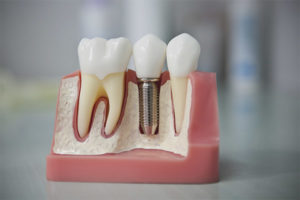
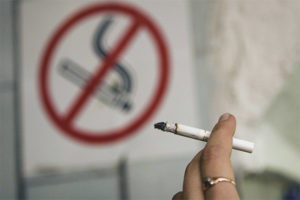
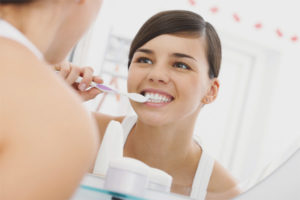
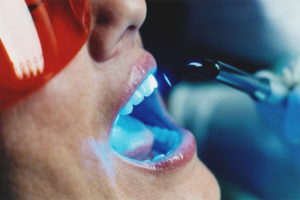
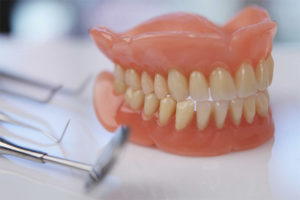
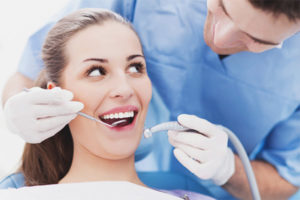
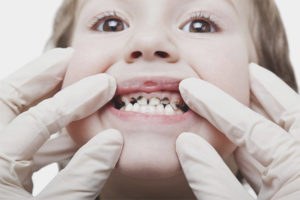
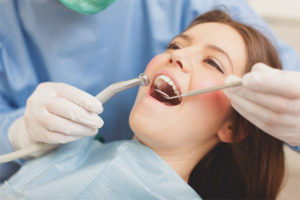
To send